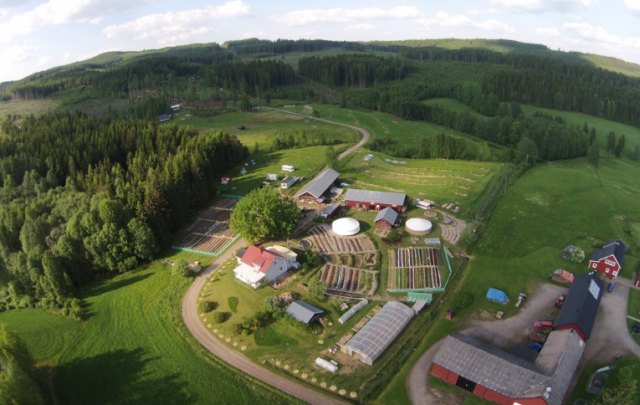Click on the headline (link) for the full text.
Many more articles are available through the Energy Bulletin homepage
The Competence Project
Sharon Astyk, Casaubon’s Book
A human being should be able to change a diaper, plan an invasion, butcher a hog, conn a ship, design a building, write a sonnet, balance accounts, build a wall, set a bone, comfort the dying, take orders, give orders, cooperate, act alone, solve equations, analyze a new problem, pitch manure, program a computer, cook a tasty meal, fight efficiently, die gallantly. Specialization is for insects.
-Robert A. Heinlein
I have an embarassing confession to make – I’m not handy at all, and I have absolutely no excuse for it. You see, unlike my husband, who grew up in an apartment where a super handled any fixing, I grew up with two parents who were both extremely handy. There was my Dad, who smelted his own bullets in our furnace, fixed things and taught me to handle a knife, an axe and screwdriver early on. And, just in case I should try and get away with whining that I didn’t learn because I was a girl (total nonsense, my Dad would have had no truck with that), my step-mother is an extremely talented woodworker, who I got to watch renovate our home more or less by herself through my whole adolescence.
… Periodically I hear others (and I do this myself) say “I’m not good at X” For X you can insert just about anything – growing food, sewing, cooking, repairing things. Now sometimes this goes to a real physical disability that has to be overcome – or can’t. There are things those of us with physical or intellectual limitations may never be able to do – just like there are people who will never master their times tables or learn to read. But barring such disabilities, there are some things in life that the general consensus requires that we have a certain basic, minimal skill set in. For example, children may come to reading or arithmetic with great difficulty or great ease, but the assumption is that they need to learn to read and do their times tables. They may never do them naturally, but they have to be able to. And the truth is that for most people who received an adequate education, they can read and figure, if laboriously.
There are large chunks of basic subsistence skills that we really need to treat as part of the same basic categories as reading and math – things that every adult person should have a certain level of minimal competence in, barring a true physical or mental barrier to them. I’m not sure I’d use Robert Heinlein’s list quoted above, but you can come up with a decent one that isn’t too far off and that prepares us for this new world where we can’t buy our way out of so many problems-
(5 November 2008)
Personal Survival Skills:
Life At The Twlight Of Empire
Michelle Fealk, Adriana Guillen, Colin Peacock, Sarah Rios, et al; Counter Currents
A group of concerned University of Arizona students journeyed into the world of peak oil and the consequent end of the world as we know it. This report reviews our efforts to develop plans to survive and even prosper, if modern infrastructure failes. And just exactly what we’re going to do about it, anyway.
—-
Introducing The World
We are a small group of students with diverse backgrounds and life goals. We began this journey relatively uninformed about the impacts of peak oil and other end-of-the-world-as-we-know-it scenarios, and our opinions differ as to how accurate or biased those scenarios are. But we share a common interest in personal survival as the chance of civilization collapsing increases, and we wish to share our newly accumulated knowledge with others who are similarly concerned about their own futures.
This report is intended to serve as a guide along the path we have, thankfully, already trodden and worn down, along with several thousand scientists, conspiracy-theory crackpots, and average frustrated chumps as we have come up against a world in turmoil. Specifically, we face an ambiguous future in a world that grows increasingly dependent on oil even as global supplies fall.
We begin by briefly discussing the evidence behind peak oil and the importance of crude oil to civilization. Then we review various scenarios of a future that, perhaps thankfully, we cannot fully predict. We conclude by discussing several areas of human life that we wish to continue participating in after the fall of civilization: Water, Food, Shelter, Community, and Medicine. We identify opportunities to access these wonderful components of society even as the world as we know it is turned upside down.
(4 November 2008)
Original is at Personalsurvivalskills.com . Original has nice graphics but may be a little harder to read. -BA
Podcasts online – Bioneers by the Bay Conference (audio)
Joanna Harcourt-Smith, Bioneers via Future Primitive
Bioneers by the Bay Conference
24-26 October 2008, New Bedford, MA
Visionary and practical solutions for restoring the Earth and its inhabitants.
Joanna Harcourt-Smith interviews the speakers and workshop presenters at the conference.
For more information on the conference, see Connecting for Change.
(November 2008)
A grab bag of interviews on subjects related to sustainability. Population, farming, and organizing are some of the topics. -BA
Environment and energy coverage at TNR
Bradford Plumer and staff, The New Republic
The New Republic site seems to have undergone a makeover and is featuring some excellent new sections that are open access:
Environment & energy articles
The Vine (Environment and energy blog)
Format and political viewpoint seems to be similar to Gristmill (a good model).
A search of the site turned up some mentions of peak oil.
The Society of Environmental Journalists says:
“The New Republic’s new environment and energy blog, “The Vine,” has posted a series of interesting and important stories on subjects ranging from smartening up the national electric grid and the prospects for keeping the Clinton-era “Roadless Rule” — to powering cars with sludge and the question of whether daylight savings time is a waste in terms of energy savings. Posts are from people like Bradford Plumer, Dayo Olopade, and Rob Inglis of High Country News.”
(November 2008)





